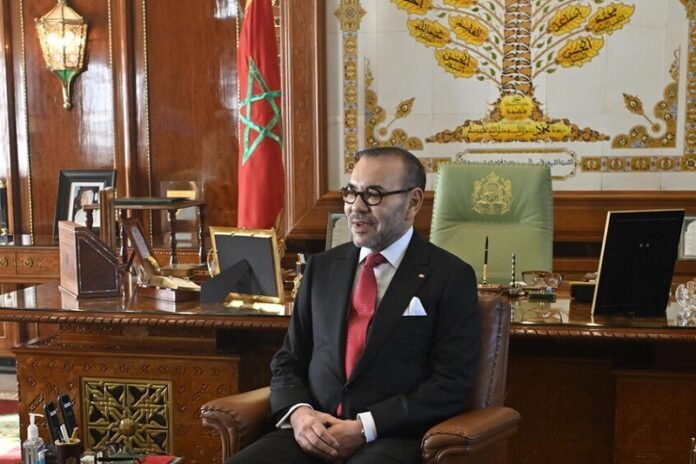Within a single week, the voice of the Moroccan street rose through youth-led digital initiatives under the name Gen Z 212. Clear demands emerged, covering health, education, employment, and anti-corruption measures, while holding the government accountable for accumulated failures. This momentum raises a central question: what are the King’s constitutional powers regarding a government with members being called to resign, and what mechanisms does the Constitution provide for dissolving or sanctioning it?
This article offers a comprehensive analytical reading, combining the constitutional text with political, social, and ethical analysis, while presenting realistic scenarios for objective discussion.
1. Constitutional Framework: Texts and Powers
The 2011 Moroccan Constitution grants the King a central role: head of state, symbol of national unity, and guarantor of state continuity. In the current context, the key issue is the scope of his intervention in governmental and parliamentary affairs:
-
Right to dissolve: The King may dissolve the House of Representatives, the House of Councillors, or both, by royal decree in accordance with Articles 96, 97, and 98, after consulting the president of the Constitutional Court and notifying the Prime Minister and the chamber presidents, while delivering an official speech to the nation explaining the reasons.
-
Elections within two months: If Parliament is dissolved, the Constitution requires new elections within two months, reflecting the seriousness and necessity of this procedure.
-
No repeat dissolution for one year: Article 98 prohibits dissolving the new Parliament within a year, ensuring state stability.
-
Prime Minister’s initiative: The Prime Minister may propose Parliament’s dissolution after consulting the King and the heads of constitutional institutions, providing a statement to Parliament explaining the reasons.
This precise allocation of responsibilities positions the King as guarantor of national balance, while the government handles executive management.
2. Current Context: Why Discuss Resignation or Dissolution Now?
The Gen Z 212 movement did not arise by chance. A digitally connected youth, influenced by images and videos from hospitals, universities, and streets, triggered a wave of digital and on-the-ground protests.
-
Social trigger: Deaths in hospitals due to lack of equipment, rising unemployment, regional disparities in education and health.
-
Political accumulation: Loss of trust in a government that failed to deliver promises and frustration over lack of transparency in public spending.
-
Political dimension: Social demands quickly turned into explicit political demands: current government dismissal, reorganization of national priorities, away from “symbolic” projects accused of draining resources.
Following urban clashes and casualties, voices called for intervention at the highest political level to end the crisis.
3. Royal Intervention Scenarios: Between Text and Reality
a. Direct Royal Address
-
Action: Deliver a speech to the nation acknowledging state responsibility and ordering urgent measures (independent commission, emergency budget, implementation deadlines).
-
Impact: Immediate calming of the street while preserving institutional continuity.
-
Challenge: Success depends on tangible and transparent implementation; otherwise, it remains symbolic.
b. Parliament Dissolution and Elections
-
Action: Exercise the King’s constitutional powers to dissolve Parliament and hold elections within two months.
-
Impact: Renewal of political legitimacy through the ballot box.
-
Challenge: Does not guarantee structural response to youth demands if public policies remain the same and may create short-term political turbulence.
c. Government Dismissal or Major Cabinet Reshuffle
-
Action: Request resignation or dismissal of some ministers with government team reorganization.
-
Impact: Middle-ground solution preserving institutions and signaling quick responsiveness to youth.
-
Challenge: May not satisfy youth seeking radical change in political culture.
d. Accountability and Judicial Investigation
-
Action: Establish a royal investigative commission or refer files to the judiciary.
-
Impact: Strong message on accountability and justice, with tangible signals for the street.
-
Challenge: Requires independence and transparency of results; otherwise, it becomes a mere social palliative.
4. Limits of Constitutional Solutions
Even with Parliament dissolution or government dismissal, core problems remain:
-
Absence of a genuine health and education reform plan.
-
Erosion of citizen-institution trust.
-
Weak transparency mechanisms in public spending.
In other words, constitutional solutions may change faces but not public policies.
5. Strategic Open Questions
-
To the King and government: What urgent measures within 30 days to improve essential services in provinces?
-
To the government: Is there a transparent plan to redirect spending toward health and education?
-
To Parliament: Will an independent investigative commission be established?
-
To the Public Prosecutor: Are there ongoing procedures regarding hospital deaths and corruption violations?
-
To civil society: How can youth participation be protected and represented in institutional dialogue?
-
To citizens: Should we prioritize rapid elections or long-term institutional reforms?
Conclusion
The Moroccan Constitution provides the King with various tools, from symbolic speeches to dissolving Parliament or dismissing the government, yet the Gen Z crisis is not one of texts but of trust, institutions, and social justice. Quick responses may calm unrest, but only deep reform can turn youth protests into an opportunity to rebuild the social contract.
In this context, analytical journalism plays a crucial role, asking essential questions, monitoring implementation, and holding all actors accountable to faithfully reflect Moroccan society at a pivotal moment in its political and social history.


